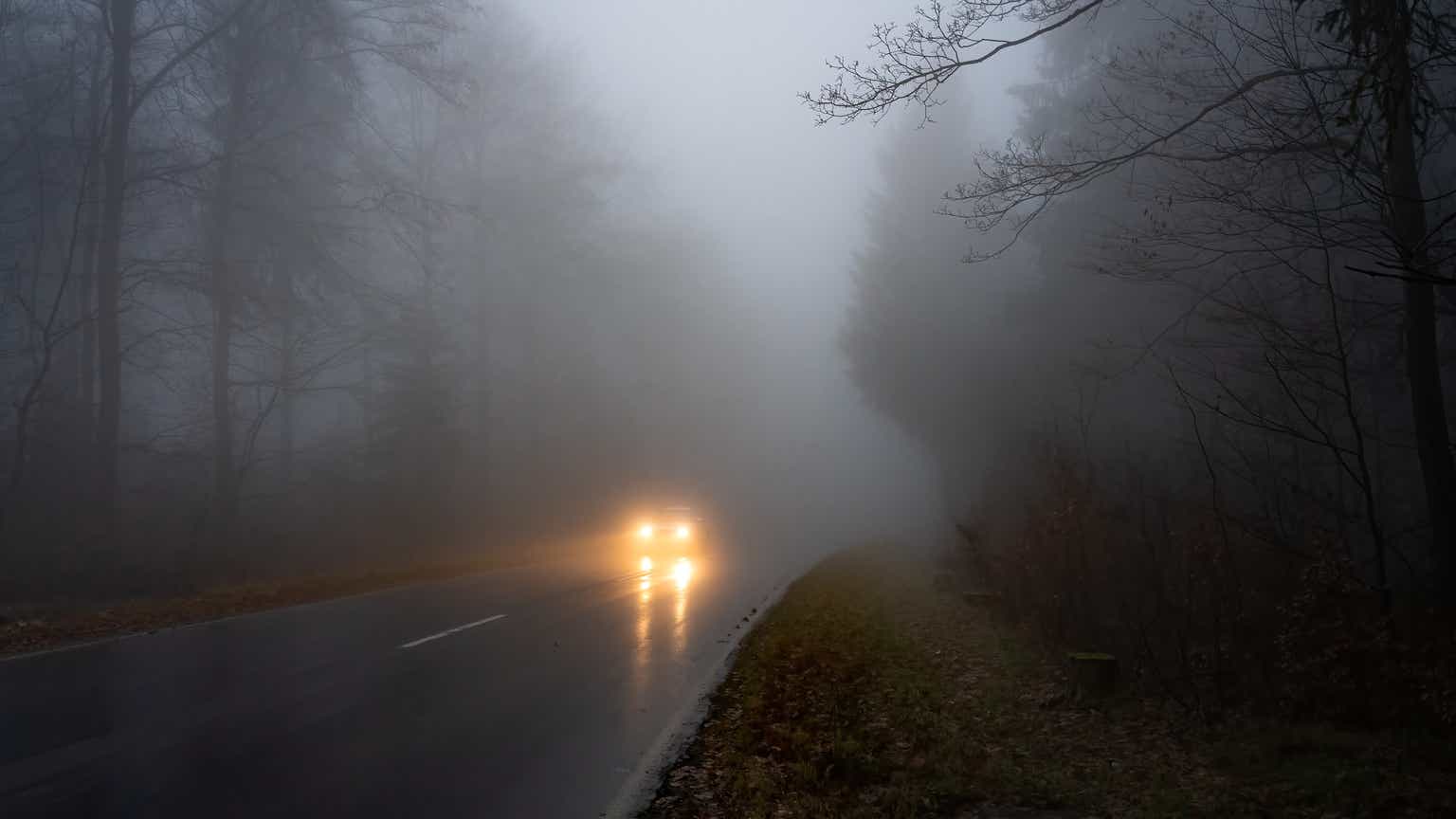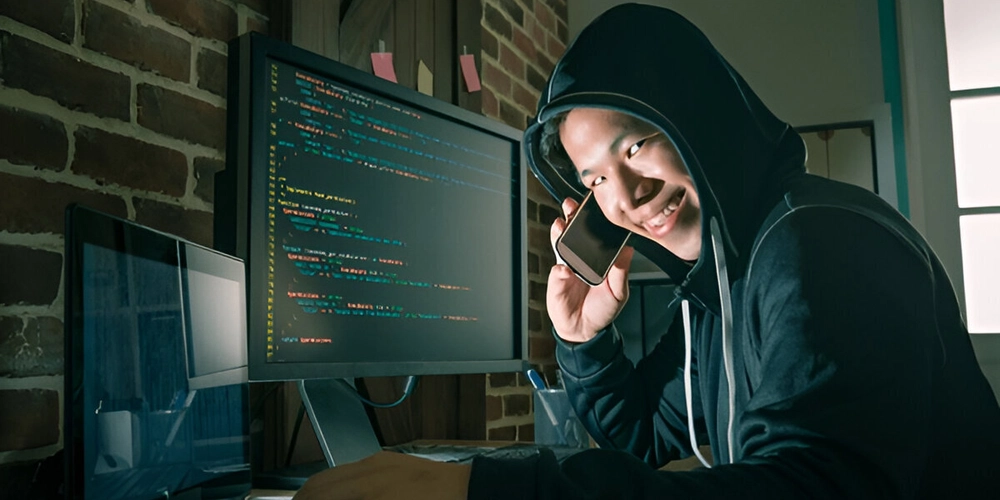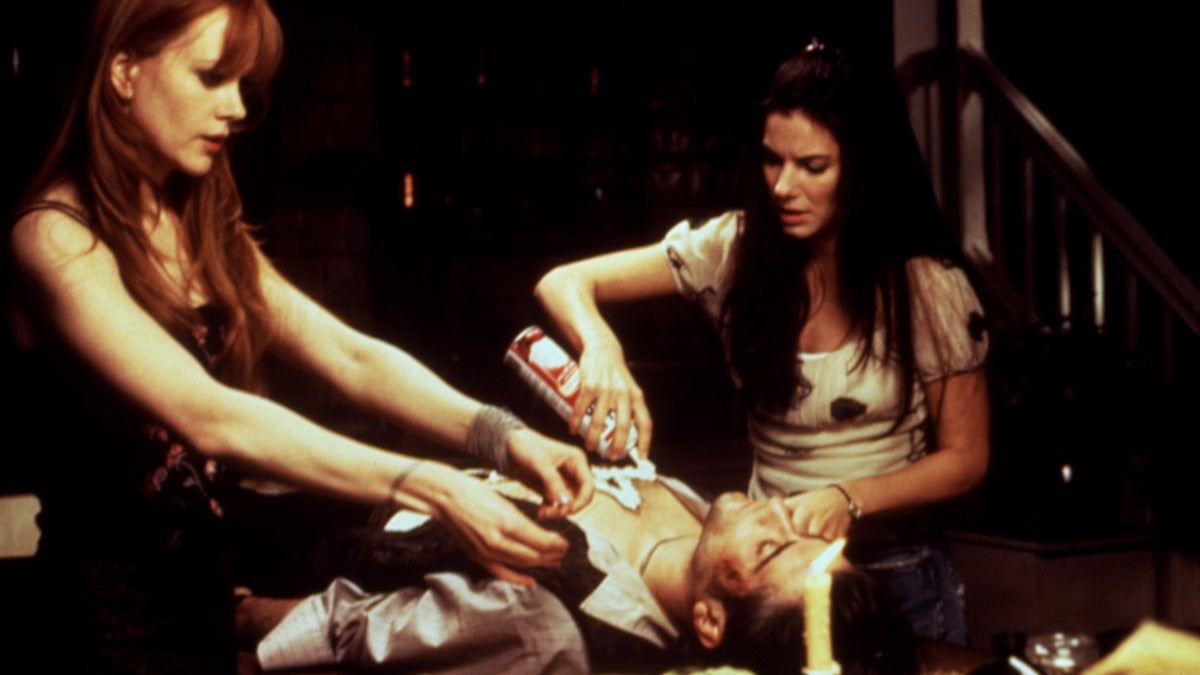Big Trouble in Little China: The Greatest Cult Film of All-Time?
We take a deep dive into how Big Trouble in Little China became a cult sensation thanks to its VHS and cable release. The post Big Trouble in Little China: The Greatest Cult Film of All-Time? appeared first on JoBlo.
I come from the video generation. People today have their pick of whatever they want to see online – legally or not – so one can’t say there’s a lack of available stuff. In fact, I’d wager no movie, no matter how obscure, is totally impossible to find nowadays. But let me take you back to a time before the internet, when things weren’t so easy to find. In the eighties and nineties, we had video stores, where you could rent video tapes for a day, and were limited by the inventory, which is why everyone had at least two or three video stores in their circuit to hit. Each place had different things. Without the internet, renting older movies was a real crapshoot, especially if they were obscure, but sometimes you’d find gold.
Such was the case when, at thirteen years old, I walked into my local video store, hit the action section, and picked up a VHS tape for a movie called Big Trouble in Little China. Here in Canada, it never aired on TV, but it starred Kurt Russell, a hero of mine, so that was good enough for me. And no, I didn’t know who John Carpenter was at the time, but you can bet that once I saw it, I tracked down all of his movies. More than anything, I was lured in by the Indiana Jones-style cover art, which promised some high adventure.
Thus, when I popped it in my VCR, I was blown away by John Carpenter’s action-packed and often hilarious pastiche of Hong Kong action cinema and supernatural fare. I thought I had stumbled upon this amazing movie no one else had seen, until 1996, when I finally got my first computer, and discovered that Big Trouble in Little China had a big enough fan base to be considered a cult movie. Since then, its reputation has grown so much that many folks might be surprised to learn that it was a big box office flop in 1986, so much so that the budgets for Carpenter’s follow-up movies were slashed considerably. However, his creativity still made movies like They Live and Prince of Darkness cult classics like this one.
Big Trouble in Little China is the product of a wide range of influences. In the 1980s, Hollywood was fascinated with Asia, and many movies were made about the East meets West cliché, such as The Challenge, Forced Vengeance with Chuck Norris, Year of the Dragon, and even Eddie Murphy’s The Golden Child. The genre would essentially be killed the following year when the Sean Penn/ Madonna movie Shanghai Surprise became one of the biggest flops of the decade.
Written by Gary Goldman and David Z. Weinstein, Big Trouble in Little China was originally a western about a cowboy who teamed up with a Chinese railroad worker to rescue the latter’s fiancée. It was W.D. Richter, the man behind The Adventures of Buckaroo Banzai, who updated the script, making the cowboy a blowhard trucker named Jack Burton. Carpenter, attempting to branch out into another genre beyond horror, and had some success recently with Starman, was hired to direct by the studio, 20th Century Fox, who no doubt hoped this would be an Indiana Jones-style movie.
But did they even read the script?
At the time, Kurt Russell, who had already made a few classics with Carpenter, was quickly rising in Hollywood, with him having the look of an action icon. Yet, the thing that attracted him, as well as Carpenter, to the project was how unconventional it was. Typically, there’s a cliche where the white hero, in American movies anyway, saves the day and protects his asian sidekick. Big Trouble in Little China inverted the formula. While a heroic lead, Burton is also a total klutz, with his John Wayne style swagger covering up for the fact that he has absolutely no idea what’s happening, but hey, at least he has the confidence to face whatever’s thrown in his way. Instead, the “sidekick”, Dennis Dun’s Wang Chi, is the real hero, which is fitting as he has more skin in the game, with his green-eyed fiancee being kidnapped by the minions of the villainous Lo Pan (brilliantly played by James Hong) so she can be sacrificed and restore him to life.

Jack would get a love interest of his own, in Kim Cattrall’s Gracie Law, who, just like Jack, is a bit of a klutz and totally overwhelmed by what’s happening. The whole movie benefits from a great ensemble, with the two comic relief characters, Donald Li’s Eddie and Kate Burton’s Margot, also lovable in their own right, with their own little romance happening in the film’s background. Meanwhile, the great Victor Wong plays Egg Shen, a Chinatown sorcerer who is the heroic counterbalance to the evil Lo Pan and duels with him in the climax.
Besides the humour, what arguably makes the film is that Carpenter brought a genuine appreciation for the rhythms and style of what was happening in Hong Kong cinema at the time. Supernatural action comedies, such as the ones directed by Tsui Hark, were in vogue at the moment, and Carpenter did a great job mixing their vibe with his own rougher-edged take on action, with some horror and sci-fi elements mixed in for good measure. The action sequences, which James Lew choreographed, are better than anything Hollywood was offering at the time. For evidence, one needs only look at the failed English language movies Jackie Chan was shoehorned into – The Big Brawl and The Protector, which were bargain basement at best. Carpenter had the rhythms down, and wasn’t afraid to get fanciful, with plenty of wire fu. It helps that he, along with Alan Howarth, wrote one of the best action scores of the eighties, standing the test of time as the single best score he ever wrote. The theme song by his band The Coup De Villes is a banger too.
Yet, the movie was a flop in the summer of 1986. It was rushed to theatres because it had competition from the similarly themed The Golden Child, at the time, there was no bigger star on the planet than Eddie Murphy. The studio also had no idea how to promote it, and they hid the fact that Russell was playing a mostly comic character by having the classic Drew Struzan poster emphasize Russell’s muscles and the gun he carries around for part of the movie. Interestingly, Jack Burton only kills three people in the film, one of them by accident.
It made a terrible $11.1 million at the box office, and Fox gave up on it shortly after the opening because their big summer movie, Aliens, was on the way to theatres, and they needed to put all their muscle behind it. However, the movie did benefit from coming out at the height of the VHS boom, and slowly but surely, folks started watching it on video and cable, with it eventually becoming a cult classic. When they recorded a memorably inebriated commentary track in 2001, Carpenter and Russell were pleased at how the movie’s cult had grown enough to afford a special edition DVD, with Russell even saying it was one of his favourite movies. The cult only grew from there, as many of the movie’s fans grew up to become movie stars, with Dwayne Johnson so massive a fan he tried to do a legacy sequel at one point. Its influence has become gigantic, with Taika Waititi’s reinterpretation of Thor, as played by Chris Hemsworth, heavily inspired by the film. Chris Pine’s character in the recent Dungeons and Dragons movie also seems heavily inspired by Jack Burton, although he played the part as a little too smug for my liking, as Burton was a lot of things, but wasn’t smug. Perhaps its most lasting effect on the pop culture was how it influenced the designs of two Mortal Kombat characters, with Raiden based on the henchman, Lightning, while Shang Tsung is based on Lo Pan.
Thirty-nine years after it came out, Big Trouble in Little China finally has the classic status it always deserved, with it big enough now that you can’t even really call it a cult movie anymore. What’s interesting is how well the movie plays with modern audiences, as it seems to embody all the best elements of the eighties, without any of the drawbacks that mar certain movies of the era. Hey – Carpenter and Russell aren’t only still alive, but they’re still pals. Is it too late for another ride on the Pork Chop Express? It’s all in the reflexes.
The post Big Trouble in Little China: The Greatest Cult Film of All-Time? appeared first on JoBlo.









































































!["It Gives Her a Little Bit of Power": 'Ghosts' Star Sheila Carrasco Reveals How Hetty and Trevor Brought Out a New Side of Flower [Exclusive]](https://static1.colliderimages.com/wordpress/wp-content/uploads/2025/05/ghosts-season-4-episode-18-flower.jpg?#)






